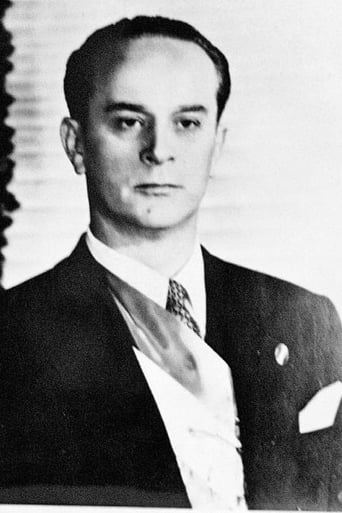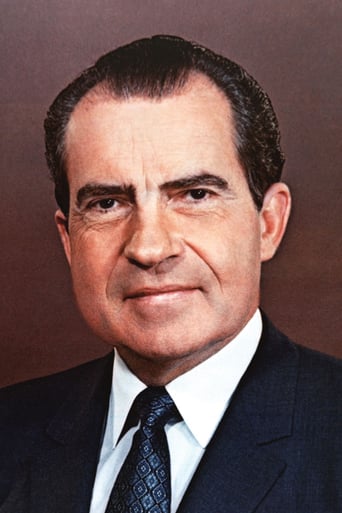Lovesusti
The Worst Film Ever
SincereFinest
disgusting, overrated, pointless
Yash Wade
Close shines in drama with strong language, adult themes.
Cassandra
Story: It's very simple but honestly that is fine.
Adrian Edwards
I do not wish to add more praise on my fellow-Australian than has been heaped on him so far, but it was great to see a well made documentary covering the way the US corporate empire tries as desperately to hang on to its satrapies as did the Roman and Ottoman empires.We had the unpleasant experience of having our popularly elected government led by Gough Whitlam destabilised by the CIA while at the same time they were backing Indonesia's illegal invasion of East Timor in which six Australian journalists were murdered. It turns out that the coup by which that Indonesian leader, Suharto, came to power was also orchestrated by the CIA, and thousands of Indonesians, especially ethnic Chinese, were slaughtered in the name of anti-Communism.It is by now well known that the casus belli for the war on the Vietnamese, the so-called Gulf of Tonkin incident, was a total fabrication, used to justify President Johnson's decision to reverse President Kennedy's plan to withdraw all troops from South Vietnam.There is plenty material here for The War on Democracy II if John wants to do a sequel.
hal-womack
The bottom line for John Pilger's WAR ON DEMOCRACY documentary = Go See It! Then you can talk about it.I am addressing these remarks in the first place to law-abiding people, as most sharply distinguished from war criminals. The definition of a crisis = a period in which, in order to abide by that law which serves justice only, one must be prepared to enforce it. This extraordinary duty occurs because the official agencies with their names in the upper case --DoJ, DoD & CIA, for example-- have been captured by a bloody tyranny which utterly perverts such basic political concepts as those of justice, defense and intelligence. (Spook HQ is now officially named the George Bush Center for Intelligence, which is located two doors down from the Wilt Chamberlain Home for Short People.) These general reflections very much pertain to the subject of Mr.Pilger's masterpiece.I speak Spanish and briefly represented the U.S. State Department in Chile in 1964 & '65. In its hour & a half, WOD covers Latin America from El Salvador to Chile with a focus on Venezuela led by Hugo Chavez and a stop in Bolivia. For those new to this continent, WOD's an absolutely essential introduction. For those who already know it (among the group whom I'm addressing, please remember), they will be overjoyed to see an intelligent and artistically coherent story of their homelands on the Big Screen. We're talking about a place more than twice the area of the USA with more than half a billion people, hundreds of millions of whom are dirt poor and many of whom have had relatives murdered by thugs trained by the US Army at the "School of the Americas", which has recently changed its name out of embarrassment.When Pilger says that the CIA puppet regime in Guatemala slew "thousands", he is grossly understating the case, since the best estimate's ~250,000. Naturally he spent more time in countries where it's safer to film. Once we understand that we should all bring everybody we know to see this movie, then we can acknowledge that it's an opening of the door to a vast realm. Many more such features need to be made even to begin to do justice to the material.A criticism: In discussion with a Chilean physician who was a torture victim, Pilger uses a phrase about being "ensnared in fascism". IMHO he should simply forget the F word. As a matter of historical fact, Benito Mussolini, who created the concept of Fascism and led that Party in national power for a quarter of a century, had a lot more going for him than did the traitor Generals Rios Montt of Guatemala or Augusto Pinochet of Chile, to name only two of the dozens of US puppets in the region. The CIA's Guatemalan Genociderals in particular in their atrocities by far exceeded any acts of repression which Il Duce ever carried out in Italy. In other words, from Ronald Reagan until now the U.S. Government gives Fascism a bad name. Anyone who wants to have a head's up 'tude toward such a big part of our human race will definitely want to check out John Pilger's well-informed portrait of the irresistibly rising forces of the Western Hemisphere. Alert supporters of Barack Obama, Ralph Nader and Cynthia McKinney will want to give thought to tying in WOD to their candidates' campaigns.OTOH white supremacists & jingoes who think that slaughtering the families of foreigners is still cool, especially if they themselves can get a piece of the financial action, well, such "Chicago boys" as SonnaBush calls them in WOD, they will pan Pilger's product as skillfully as they can manage.
Jeffrey Blackler
Students of Uncle Sam's doings in Latin America from the overthrow of Allende or earlier will find little new in Pilger's first big screen documentary. But its message needs to repeated again and again and as widely as possible: that "freedom" and "democracy" loving US regimes have stolen or overridden the rights of the poor in every part of the world, perhaps most of all in the "back yard". I saw the movie in a white liberal middle class district of London where the normally reticent audience gave it a round of applause. Preaching to the converted maybe. It needs to be shown as widely as possible. Viva Pilger!
Alain English
John Pilger's first documentary for the cinema is also his most optimistic. When I sat down to watch it with an audience, I was wondering why Pilger had chosen this time to release a documentary for cinema when he's been doing this for television for so long. I think the optimism is the reason, the need to get that optimism across to a much broader audience than the one that views his television work. Recent work like "The Corporation", "The Yes Men", as well as the work of Micheal Moore, has shown a demand for this kind of non-fiction in the cinema and Pilger is following this trend. What this work has in common is need to critique US power, the different ways in which this manifests itself, and the effect it has on people all over the world.Here, Pilger focuses on Latin America, the source of much popular uprising in recent years with the arrival in Venezuala of President Hugo Chavez and the failed US-backed bid to overthrow him after he acknowledged and championed the poor at the expense of the rich minority whom (because of this) he had begun to make uncomfortable.Interestingly there is a lack of censorship shown in the Venezualan media which means attacks on the President and his policies are not only constant but almost violently vociferous. Perhaps the only failing in Pilger's examination of Venezuala (including a face-to-face interview with Chavez himself) is specifying where this opposition comes from, asides from the privileged minority in the country and US media and government officials.Pilger further examines other cases in Latin America, including El Salvatore, Guatemala and Chile, where US or US-backed suppression of social or political movements (often elected democracies) that oppose their involvement in these countries has led to poverty, torture and murder. Former CIA agents willingly admit on screen that if a government, democratic or not, was not co-operative with US power they were often under orders from the highest level to destroy or undermine such governments using any methods necessary. One such official, a former CIA chief called Duane Clarridge responsible for torture and murder of civilians in Chile, is so blatantly ignorant and unapologetic in his answers to Pilger's questions that his responses induced laughter in the audience I watched it with.Throughout all of this, Pilger features his usual interviewing of civilians caught up in, and often victims of, these various conflicts. Some of this is insightful but, like his use of music in some moments, can border on the emotionally manipulative. Also his early extensive emphasis on Venezuala means his coverage of the other countries feels abbreviated as a result. That said, most of the time Pilger gets it right and his interviews along with his readings of each country's history effectively communicate his message.Rather than despairing of the reality of what he depicts, Pilger instead offers hope for change in the will of the people never to be victimised and to continue to resist and challenge oppressive power - a change is a-coming and Latin America, like the rest of us, is right in the middle of it.




